203 results found for 'Energy'. Prev |1|2|3|4|5|6|7|8|9 | Next | View 100 per page
Low relevance matches: 9 other results may be of interest to you. Show low relevance matches
Electrical Circuits - Electrical energy can be transferred and transformed in electrical circuits and can be generated from a range of sources ACSSU155 Year 8 Physical Sciences
Energy Forms - Energy appears in different forms, including movement (kinetic energy), heat and potential energy, and energy transformations and transfers cause change within systems ACSSU176 Year 9 Biological Sciences
Ecology - Ecosystems consist of communities of interdependent organisms and abiotic components of the environment; matter and energy flow through these systems ACSSU179 Year 9 Chemical Sciences
Chemical Reactions - Chemical reactions, including combustion and the reactions of acids, are important in both non-living and living systems and involve energy transfer ACSSU182 Year 9 Physical Sciences
Energy Transfer - Energy transfer through different mediums can be explained using wave and particle models ACSSU190 Year 10 Physical Sciences
Energy Conservation - Energy conservation in a system can be explained by describing energy transfers and transformations ACSSU219 Year 6 Physical Sciences
Alternative Energies - Energy from a variety of sources can be used to generate electricity ACSCH018 Year 11 Chemical fundamentals
Properties and structure of atoms - Atoms can be modelled as a nucleus surrounded by electrons in distinct energy levels, held together by electrostatic forces of attraction between the nucleus and electrons; atoms can be represented using electron shell diagrams (all electron shells or val ACSCH019 Year 11 Chemical fundamentals
Properties and structure of atoms - Flame tests and atomic absorption spectroscopy are analytical techniques that can be used to identify elements; these methods rely on electron transfer between atomic energy levels ACSCH036 Year 11 Chemical fundamentals
Chemical reactions - All chemical reactions involve the creation of new substances and associated energy transformations, commonly observable as changes in the temperature of the surroundings and/or the emission of light ACSCH037 Year 11 Chemical fundamentals
Chemical reactions - Endothermic and exothermic reactions can be explained in terms of the Law of Conservation of Energy and the breaking and reforming of bonds; heat energy released or absorbed can be represented in thermochemical equations ACSCH073 Year 11 Molecular interactions and reactions
Rates of chemical reactions - Catalysts, including enzymes and metal nanoparticles, affect the rate of certain reactions by providing an alternative reaction pathway with a reduced activation energy, hence increasing the proportion of collisions that lead to a chemical change ACSPH020 Year 11 Thermal nuclear and electrical physics
Heating processes - Provided a substance does not change state, its temperature change is proportional to the amount of energy added to or removed from the substance; the constant of proportionality describes the heat capacity of the substance ACSPH022 Year 11 Thermal nuclear and electrical physics
Heating processes - Two systems in contact transfer energy between particles so that eventually the systems reach the same temperature; that is, they are in thermal equilibrium ACSPH030 Year 11 Thermal nuclear and electrical physics
Ionising radiation and nuclear reactions - Alpha, beta and gamma radiation have sufficient energy to ionise atoms ACSPH039 Year 11 Thermal nuclear and electrical physics
Electrical circuits - Energy is conserved in the energy transfers and transformations that occur in an electrical circuit ACSPH040 Year 11 Thermal nuclear and electrical physics
Electrical circuits - The energy available to charges moving in an electrical circuit is measured using electric potential difference, which is defined as the change in potential energy per unit charge between two defined points in the circuit ACSPH041 Year 11 Thermal nuclear and electrical physics
Electrical circuits - Energy is required to separate positive and negative charge carriers; charge separation produces an electrical potential difference that can be used to drive current in circuits ACSPH042 Year 11 Thermal nuclear and electrical physics
Electrical circuits - Power is the rate at which energy is transformed by a circuit component; power enables quantitative analysis of energy transformations in the circuit ACSPH065 Year 11 Linear Motion and Waves
Linear motion and force - Energy is conserved in isolated systems and is transferred from one object to another when a force is applied over a distance; this causes work to be done and changes to kinetic and/or potential energy of objects ACSPH066 Year 11 Linear Motion and Waves
Linear motion and force - Collisions may be elastic and inelastic; kinetic energy is conserved in elastic collisions ACSPH073 Year 11 Linear Motion and Waves
Waves - A mechanical system resonates when it is driven at one of its natural frequencies of oscillation; energy is transferred efficiently into systems under these conditions ACSPH111 Year 12 Gravity and electromagnetism
Electromagnetism - Conservation of energy, expressed as Lenz’s Law of electromagnetic induction, is used to determine the direction of induced current ACSPH136 Year 12 Revolutions in modern physics
Quantum theory - On the atomic level, electromagnetic radiation is emitted or absorbed in discrete packets called photons; the energy of a photon is proportional to its frequency; and the constant of proportionality, Planck’s constant, can be determined experimentally (fo ACSPH139 Year 12 Revolutions in modern physics
Quantum theory - The Bohr model of the hydrogen atom integrates light quanta and atomic energy states to explain the specific wavelengths in the hydrogen spectrum and in the spectra of other simple atoms; the Bohr model enables line spectra to be correlated with atomic en ACSBL052 Year 11 Biodiversity and the interconnectedness of life
Ecosystem dynamics - Photosynthesis is a biochemical process that in plant cells occurs in the chloroplast and that uses light energy to organic compounds; the overall process can be represented as a balanced chemical equation ACSBL053 Year 11 Biodiversity and the interconnectedness of life
Ecosystem dynamics - Cellular respiration is a biochemical process that occurs in different locations in the cytosol and mitochondria and metabolises organic compounds, aerobically or anaerobically, to release useable energy in the form of ATP; the overall process can be repr ACSPH021 Year 11 Thermal nuclear and electrical physics
Heating processes - Change of state involves internal energy changes to form or break bonds between atoms or molecules; latent heat is the energy required to be added to or removed from a system to change the state of the system ACSPH067 Year 11 Linear Motion and Waves
Waves - Waves are periodic oscillations that transfer energy from one point to another ACSPH070 Year 11 Linear Motion and Waves
Waves - Mechanical waves transfer energy through a medium; mechanical waves may oscillate the medium or oscillate the pressure within the medium ACSPH140 Year 12 Revolutions in modern physics
Quantum theory - On the atomic level, energy and matter exhibit the characteristics of both waves and particles ACSPH135 Year 12 Revolutions in modern physics
Quantum theory - Atomic phenomena and the interaction of light with matter indicate that states of matter and energy are quantised into discrete values ACSPH105 Year 12 Gravity and electromagnetism
Electromagnetism - When a charged body moves or is moved from one point to another in an electric field and its potential energy changes, work is done on or by the field
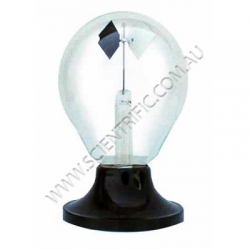

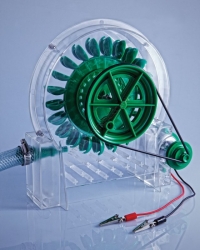
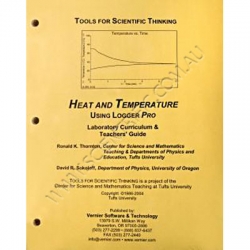
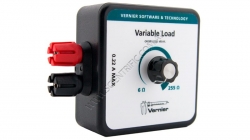
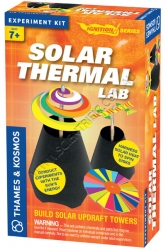
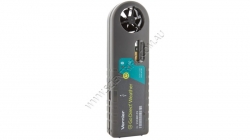
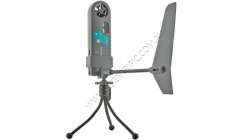
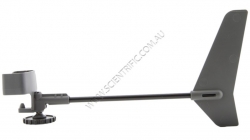
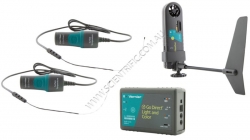
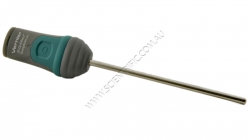

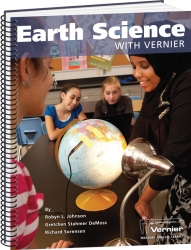

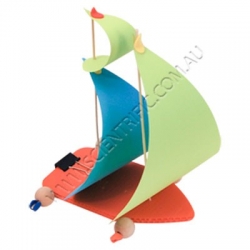



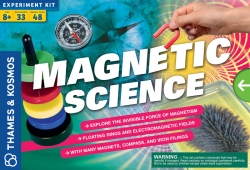
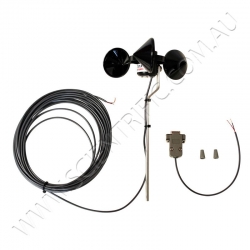
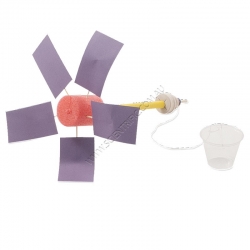

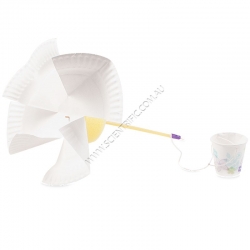

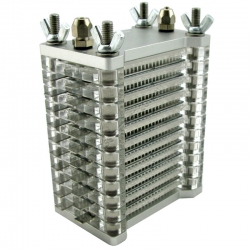
203 results found for 'Energy'. Prev |1|2|3|4|5|6|7|8|9 | Next | View 100 per page
Low relevance matches: 9 other results may be of interest to you. Show low relevance matches
Curriculum resources related to 'Energy'
ACSSU097 Year 6 Physical SciencesElectrical Circuits - Electrical energy can be transferred and transformed in electrical circuits and can be generated from a range of sources ACSSU155 Year 8 Physical Sciences
Energy Forms - Energy appears in different forms, including movement (kinetic energy), heat and potential energy, and energy transformations and transfers cause change within systems ACSSU176 Year 9 Biological Sciences
Ecology - Ecosystems consist of communities of interdependent organisms and abiotic components of the environment; matter and energy flow through these systems ACSSU179 Year 9 Chemical Sciences
Chemical Reactions - Chemical reactions, including combustion and the reactions of acids, are important in both non-living and living systems and involve energy transfer ACSSU182 Year 9 Physical Sciences
Energy Transfer - Energy transfer through different mediums can be explained using wave and particle models ACSSU190 Year 10 Physical Sciences
Energy Conservation - Energy conservation in a system can be explained by describing energy transfers and transformations ACSSU219 Year 6 Physical Sciences
Alternative Energies - Energy from a variety of sources can be used to generate electricity ACSCH018 Year 11 Chemical fundamentals
Properties and structure of atoms - Atoms can be modelled as a nucleus surrounded by electrons in distinct energy levels, held together by electrostatic forces of attraction between the nucleus and electrons; atoms can be represented using electron shell diagrams (all electron shells or val ACSCH019 Year 11 Chemical fundamentals
Properties and structure of atoms - Flame tests and atomic absorption spectroscopy are analytical techniques that can be used to identify elements; these methods rely on electron transfer between atomic energy levels ACSCH036 Year 11 Chemical fundamentals
Chemical reactions - All chemical reactions involve the creation of new substances and associated energy transformations, commonly observable as changes in the temperature of the surroundings and/or the emission of light ACSCH037 Year 11 Chemical fundamentals
Chemical reactions - Endothermic and exothermic reactions can be explained in terms of the Law of Conservation of Energy and the breaking and reforming of bonds; heat energy released or absorbed can be represented in thermochemical equations ACSCH073 Year 11 Molecular interactions and reactions
Rates of chemical reactions - Catalysts, including enzymes and metal nanoparticles, affect the rate of certain reactions by providing an alternative reaction pathway with a reduced activation energy, hence increasing the proportion of collisions that lead to a chemical change ACSPH020 Year 11 Thermal nuclear and electrical physics
Heating processes - Provided a substance does not change state, its temperature change is proportional to the amount of energy added to or removed from the substance; the constant of proportionality describes the heat capacity of the substance ACSPH022 Year 11 Thermal nuclear and electrical physics
Heating processes - Two systems in contact transfer energy between particles so that eventually the systems reach the same temperature; that is, they are in thermal equilibrium ACSPH030 Year 11 Thermal nuclear and electrical physics
Ionising radiation and nuclear reactions - Alpha, beta and gamma radiation have sufficient energy to ionise atoms ACSPH039 Year 11 Thermal nuclear and electrical physics
Electrical circuits - Energy is conserved in the energy transfers and transformations that occur in an electrical circuit ACSPH040 Year 11 Thermal nuclear and electrical physics
Electrical circuits - The energy available to charges moving in an electrical circuit is measured using electric potential difference, which is defined as the change in potential energy per unit charge between two defined points in the circuit ACSPH041 Year 11 Thermal nuclear and electrical physics
Electrical circuits - Energy is required to separate positive and negative charge carriers; charge separation produces an electrical potential difference that can be used to drive current in circuits ACSPH042 Year 11 Thermal nuclear and electrical physics
Electrical circuits - Power is the rate at which energy is transformed by a circuit component; power enables quantitative analysis of energy transformations in the circuit ACSPH065 Year 11 Linear Motion and Waves
Linear motion and force - Energy is conserved in isolated systems and is transferred from one object to another when a force is applied over a distance; this causes work to be done and changes to kinetic and/or potential energy of objects ACSPH066 Year 11 Linear Motion and Waves
Linear motion and force - Collisions may be elastic and inelastic; kinetic energy is conserved in elastic collisions ACSPH073 Year 11 Linear Motion and Waves
Waves - A mechanical system resonates when it is driven at one of its natural frequencies of oscillation; energy is transferred efficiently into systems under these conditions ACSPH111 Year 12 Gravity and electromagnetism
Electromagnetism - Conservation of energy, expressed as Lenz’s Law of electromagnetic induction, is used to determine the direction of induced current ACSPH136 Year 12 Revolutions in modern physics
Quantum theory - On the atomic level, electromagnetic radiation is emitted or absorbed in discrete packets called photons; the energy of a photon is proportional to its frequency; and the constant of proportionality, Planck’s constant, can be determined experimentally (fo ACSPH139 Year 12 Revolutions in modern physics
Quantum theory - The Bohr model of the hydrogen atom integrates light quanta and atomic energy states to explain the specific wavelengths in the hydrogen spectrum and in the spectra of other simple atoms; the Bohr model enables line spectra to be correlated with atomic en ACSBL052 Year 11 Biodiversity and the interconnectedness of life
Ecosystem dynamics - Photosynthesis is a biochemical process that in plant cells occurs in the chloroplast and that uses light energy to organic compounds; the overall process can be represented as a balanced chemical equation ACSBL053 Year 11 Biodiversity and the interconnectedness of life
Ecosystem dynamics - Cellular respiration is a biochemical process that occurs in different locations in the cytosol and mitochondria and metabolises organic compounds, aerobically or anaerobically, to release useable energy in the form of ATP; the overall process can be repr ACSPH021 Year 11 Thermal nuclear and electrical physics
Heating processes - Change of state involves internal energy changes to form or break bonds between atoms or molecules; latent heat is the energy required to be added to or removed from a system to change the state of the system ACSPH067 Year 11 Linear Motion and Waves
Waves - Waves are periodic oscillations that transfer energy from one point to another ACSPH070 Year 11 Linear Motion and Waves
Waves - Mechanical waves transfer energy through a medium; mechanical waves may oscillate the medium or oscillate the pressure within the medium ACSPH140 Year 12 Revolutions in modern physics
Quantum theory - On the atomic level, energy and matter exhibit the characteristics of both waves and particles ACSPH135 Year 12 Revolutions in modern physics
Quantum theory - Atomic phenomena and the interaction of light with matter indicate that states of matter and energy are quantised into discrete values ACSPH105 Year 12 Gravity and electromagnetism
Electromagnetism - When a charged body moves or is moved from one point to another in an electric field and its potential energy changes, work is done on or by the field
Products related to 'Energy'

Radiometer Crookes on Base 4 Vane 120x70mm
Quality glass bulb radiometer on base, 120mm tall x 70mm diameter. Used to demonstrate energy conversion from light to motion and heat. With an instruction sheet explaining the principle of operation and suggested experiments.
Order code: SC7310

Crookes Radiometer - All Glass
Crookes invented the Radiometer in 1873. The Radiometer has a rotor with four vanes which are dark on one side and light on the other. The glass bulb has a partial vacuum. The rotor spins when exposed to light. The vanes rotate faster as light intensity increases, providing a ...
Order code: SC92057

Hydroelectric Generator or Dynamo
This versatile and well made Hydroelectric Generator (Dynamo) brings hydropower right into your classroom.
Operation:
The Hydroelectric connects to the tap and the local water supply so that students can directly witness the conversion of water into electricity.
Produ...
Order code: SCHEG

Vernier Tools for Scientific Thinking - Heat and Temperature LP3
TOOLS FOR SCIENTRIFIC THINKING - HEAT and TEMPERATURE with LP3
This digital download includes a detailed Teacher’s Guide and editable files enabling modification of the activities to suit each class situation. The series of guided investigations are suitable for both high...
Order code: TSTH-LP-E

Vernier Variable Load
VERNIER VARIABLE LOAD
The Vernier Variable Load is designed to be used in conjunction with the Vernier Energy Sensor to provide a range of resistive loads for projects such as wind turbines or solar panels. The Vernier Variable Load provides an easy way to adjust the resi...
Order code: VES-VL

Solar Thermal Lab
SOLAR THERMAL LAB
Solar thermal energy refers to the technology of collecting solar energy in the form of heat and making it useful, for example, by converting it into electricity or heating homes. Huge solar thermal towers are being installed in sunny places around the w...
Order code: 657123

Vernier Go Direct Weather Sensor
VERNIER GO DIRECT WEATHER SENSOR ONLY
Easily monitor a wide variety of environmental factors with just one sensor.
The wireless handheld Vernier Go Direct Weather Sensor measures:
• Wind Speed
• Wind Chill
• Temperature
• Heat Index
• Dew Point
• Relative Humidity
...
Order code: GDX-WTHR

Vernier Go Direct Weather System with Vane
VERNIER GO DIRECT WEATHER SYSTEM
Vernier's Go Direct Weather System includes an affordable, wireless handheld sensor used to easily monitor a wide variety of environmental factors and a Vernier Go Direct Weather Vane accessory required to report wind direction.
The Wea...
Order code: GDX-WTVA

Vernier Go Direct Weather Vane
VERNIER GO DIRECT WEATHER VANE
The Vernier Go Direct Weather Vane accessory is essential for reporting wind direction using the
GDX-WTHR Vernier Go Direct Weather Sensor. Purchase the Vernier Go Direct Weather Sensor...
Order code: WTHR-VANE

Vernier Go Direct Climate and Meteorology Experiments Package
VERNIER GO DIRECT CLIMATE AND METEOROLOGY EXPERIMENTS PACKAGE
Explore weather, climate and other important weather related topics with your Year 4-8 Middle School students. Collect, share and analyze sensor data with Vernier's free Graphical Analysis software. The GA app ...
Order code: GDP-CM

Vernier Go Direct Exploring Earth and Space Science Package
VERNIER GO DIRECT EXPLORING EARTH AND SPACE SCIENCE PACKAGE
Explore the Earth science topics of weather, soil and water quality with your Years 4-8 students. Collect, share and analyze sensor data with Vernier's free Graphical Analysis software. The GA app facilitates stu...
Order code: GDP-MS-ESS

Vernier Relative Humidity Sensor
VERNIER RELATIVE HUMIDITY SENSOR
Vernier's Relative Humidity Sensor contains an integrated circuit that can be used to monitor relative humidity
over the range 0 to 95% (± 5%). The sensor has applications in weather studies, monitoring greenhouses
or for determining d...
Order code: RH-BTA

Earth Science with Vernier
EARTH SCIENCE WITH VERNIER
Earth Science with Vernier is a lab book containing 33 experiments in the subjects of geology, meteorology, hydrology, oceanography, energy, water quality and soil quality.
NOTE
If you have previously purchased a copy of this Vernier ...
Order code: ESV

Earth Science with Vernier - Electronic Version
EARTH SCIENCE WITH VERNIER - ELECTRONIC
Earth Science with Vernier is a lab book containing 33 experiments in the subjects of geology, meteorology, hydrology, oceanography, energy, water quality and soil quality.
NOTE
• When you purchase this electronic book yo...
Order code: ESV-E

Sail Car STEM Kit
SAIL CAR STEM KIT
Build a Sail Car using inexpensive materials to demonstrate how wind can propel an object. Gather measurements, record changes in variables and use simple engineering design concepts to create sails that can push the car the furthest or fastest.
The k...
Order code: SC1150

Sail Car STEM Kit for 8 Sail Cars
SAIL CAR STEM KIT TO MAKE 8 SAIL CARS
Build 8 Sail Cars using inexpensive materials to demonstrate how wind can propel an object. Gather measurements, record changes in variables and use simple engineering design concepts to create sails that can push the car the furthest...
Order code: SC1150-8

Sail Car STEM Kit for 20 Sail Cars
SAIL CAR STEM KIT TO MAKE 20 SAIL CARS.
Build 20 Sail Cars using inexpensive materials to demonstrate how wind can propel an object. Gather measurements, record changes in variables and use simple engineering design concepts to create sails that can push the car the furth...
Order code: SC1150-20

Bubble Science (V2.0)
SCIENCE EXPERIMENTS WITH SOAP BUBBLES.
Experiment with fascinating soap bubbles to learn physical science fundamentals in a fun way.
For countless generations people have been captivated by the unique properties of soap bubbles. See for yourself why these elegantly s...
Order code: 665043

Magnetic Science
Explore the Invisible Force of Magnetism
Explore the invisible and amazing power of magnets with 33 engaging experiments and games. This science experiment kit contains many magnets of different shapes and sizes and a variety of other components with which you can exp...
Order code: 665050

KidWind Inspeed Windware Data Collector
The KidWind Inspeed Windware Data Collector is the cleanest and cheapest on the market. It is perfect for collecting basic wind data that can be analyzed in Excel. You can use the data from this device to see average wind speeds, wind speed distributions and other important wind ...
Order code: KWL3002

MacGyver Windmill STEM Kit for 10 Windmills
MACGYVER WINDMILL STEM KIT BUILDS 10 WINDMILLS.
Use common household materials to build a windmill and experiment with wind power. Explore the engineering behind blade design and windmill construction.
This kit contains enough materials for 10-30 students to build 10 w...
Order code: SC1160-10

MacGyver Windmill STEM Kit for 20 Windmills
MACGYVER WINDMILL STEM KIT BUILDS 20 WINDMILLS.
Use common household materials to build a windmill and experiment with wind power. Explore the engineering behind blade design and windmill construction.
This kit contains enough materials for 20-60 students to build 20 w...
Order code: SC1160-20

Mini-Windmill STEM Kit for 10 Windmills
MINI-WINDMILL STEM KIT FOR 10 WINDMILLS
Build a mini windmill and discover how the wind can do work! Use basic materials like paper plates and straws to construct a windmill that spins in the wind in order to lift weight. The mini windmill kit is an excellent way to help ...
Order code: SC1165-10

Mini-Windmill STEM Kit for 20 Windmills
MINI-WINDMILL STEM KIT FOR 20 WINDMILLS
Build a mini windmill and discover how the wind can do work! Use basic materials like paper plates and straws to construct a windmill that spins in the wind in order to lift weight. The mini windmill kit is an excellent way to help ...
Order code: SC1165-20

Horizon Edustak Junior
HORIZON EDUSTAK JUNIOR
The 4 watt fuel cell stack comes assembled but can be dismantled and reassembled for a hands-on look at a fuel stack.
Feed air and hydrogen to the stack to produce electricity for powering your models, robots, phones etc. Note a source of hydroge...
Order code: FCSU-32
203 results found for 'Energy'. Prev |1|2|3|4|5|6|7|8|9 | Next | View 100 per page



 ,
,